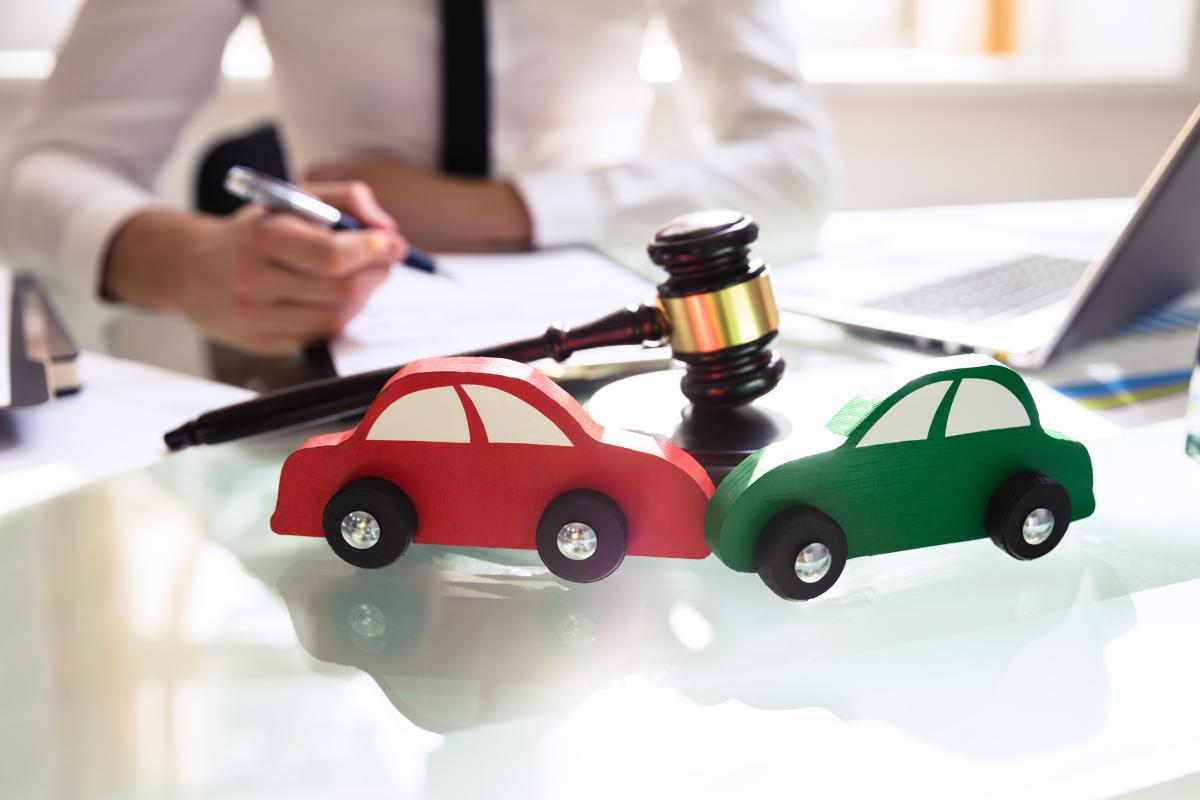5 Things Your Lawyer Wants You To Know About Car Accident Lawsuits

When it comes to legal challenges, preparation is key. Being informed is crucial when dealing with a potential lawsuit. This article provides you with the fundamental knowledge, addressing the top five things you need to know about lawsuits. Additionally, we provide a comprehensive FAQ section to guide you through insurance concerns and legal complexities.
5 Things Your Car Accident Attorney Wants You To Know
A lawyer can offer you valuable insights as you work through the legal complexities associated with a car accident. Below, we’ve listed five essential things they want you to know so you can make educated decisions and address the legal process effectively.
1. Seek medical attention immediately
Seeking immediate medical attention after a car accident is crucial for two reasons. First, it prioritizes your health and ensures that hidden injuries are promptly addressed, preventing potential complications. Early medical intervention can significantly improve recovery outcomes.
Second, acquiring timely medical records serves as documentation for legal purposes. These records link the accident and injuries sustained, strengthening your case in potential legal proceedings or insurance claims. Delaying medical attention may jeopardize your well-being and reduce the evidentiary value needed for a successful resolution.
2. Preserve evidence
With compelling evidence, proving fault and securing fair compensation becomes easier. Taking a proactive approach to preserving evidence is important to ensure a solid foundation for a successful resolution.
Focus on documenting the scene with photos, gathering witness information, and obtaining the police report. These details can serve as critical evidence in establishing liability and supporting your version of events.
Additionally, keep meticulous records of medical expenses, repair bills, and any related documents. This documentation helps quantify the financial impact of the accident, aiding in the calculation of damages.
Prompt evidence preservation will boost the credibility of your case, providing a straightforward report for insurance companies or legal proceedings.
3. Don’t admit fault
Avoid making statements that could be construed as an admission of guilt, as this can impact liability determination. Some examples of words that might be interpreted as admitting fault include:
Apologizing: Saying “I’m sorry” can be misconstrued as an admission of guilt. It’s better to express concern for the well-being of others without explicitly accepting blame.
Stating Assumptions: Avoid saying things like “I must have been too fast” or “I didn’t see you.” These statements can be used against you when determining fault.
Accepting Blame: Directly taking responsibility, even if it’s a reflexive response, can be detrimental. Phrases like “It was my fault” or “I didn’t see the stop sign” should be avoided.
Speculating on Fault: Refrain from commenting on what might have caused the accident. Stick to factual information rather than offering opinions about who is to blame.
Insurance companies and legal professionals assess various factors to establish fault, and premature admissions may complicate the claims process. By refraining from admissions, you can protect your legal rights and allow the proper channels to determine liability fairly and honestly.
4. Be cautious with insurance companies
Insurance companies may try to settle quickly and for a lower amount than you deserve. Be wary of quick settlement offers, as insurers often attempt to minimize payouts. It’s crucial to thoroughly assess the extent of the injuries and damages before accepting any settlement. In addition, insurance companies may also use recorded statements against you, so be cautious about providing information without legal guidance.
An attorney can help you navigate these complexities by advising on the fairness of settlement offers, negotiating on your behalf, and ensuring you don’t inadvertently compromise your rights. They have the experience to deal with insurance tactics and can advocate for the maximum compensation you deserve. Seeking legal counsel in this situation provides a protective buffer, ultimately helping you make an informed decision and avoid potential pitfalls when dealing with insurance companies.
5. Be aware of your state’s statute of limitations
There is a time limit, known as the statute of limitations, within which you can file a car accident lawsuit. Exceeding this legal time frame can result in losing the right to seek compensation. It’s essential to act promptly to ensure compliance with these deadlines, which vary by state. To help you navigate this, here’s a brief overview of the statute of limitations for car accident lawsuits in different states:
1 year:
Louisiana and Tennessee2 years:
Alabama, Alaska, Arizona, California, Connecticut, Delaware, Georgia, Hawaii, Idaho, Illinois, Indiana, Iowa, Kansas, Kentucky, Minnesota, Nevada, New Jersey, Ohio, Oklahoma, Oregon, Pennsylvania, Texas, Virginia, and West Virginia3 years:
Arkansas, Colorado, District of Columbia, Maryland, Massachusetts, Michigan, Mississippi, Montana, New Hampshire, New Mexico, New York, North Carolina, Rhode Island, South Carolina, South Dakota, Vermont, Washington, and Wisconsin4 years:
Florida, Nebraska, Utah, and Wyoming5 years:
Missouri6 years:
Maine and North Dakota
Remember, consulting with a legal professional in your specific jurisdiction is vital to ensure accurate and up-to-date information regarding the statute of limitations for your car accident case.
Frequently Asked Questions About Car Accident Lawsuits
What can I expect from my lawyer?
Your lawyer will initially gather details about the accident, including injuries, damages, and interactions with involved parties. They’ll request all relevant documents, such as repair estimates, police reports, photos, medical bills, and insurance correspondence.
With this information, they’ll prepare your case and outline potential outcomes. However, it’s important to note that while your attorney can guide you through the legal process, they won’t predict the specific award size or trial outcome. Their focus is on building a robust case based on the available evidence and advocating for your best interests throughout the legal proceedings.
What can I expect from my insurance company?
After reporting the accident, your insurance company will initiate the claims process. Your representatives will guide you through filing a claim and assist in settling with the other driver’s insurance.
Should you decide to file a lawsuit, your insurance company will collaborate with your attorney, sharing relevant information to support. Expect your insurance team to be a valuable resource, helping you at every stage and facilitating effective communication with the involved parties throughout the resolution process.
What happens if I let insurance handle the accident instead of filing a lawsuit?
Choosing to have your insurance company handle an accident is often more straightforward, as they are well-versed in post-accident procedures. If the damage is confined to your car, hiring an attorney may not be necessary.
However, in complex cases, involving an attorney becomes valuable. They can manage tasks like communicating with witnesses, reviewing medical records, and handling investigative aspects. An attorney is particularly beneficial when navigating legal complexities, especially regarding fault determination. If injuries are involved, an attorney is better positioned to secure the compensation you rightfully deserve.
While insurance can efficiently handle straightforward cases, an attorney becomes pivotal when legal complications demand a more comprehensive approach.
How will I know if my car accident is bad enough to require a lawsuit?
Drawing on their experience, your attorney will assess whether your car accident warrants a lawsuit. Typically, legal action is considered if the defendant’s insurance offer falls short of compensating for your damages. If negotiations with the insurance company reach an impasse and your attorney deems it necessary, filing a lawsuit becomes a viable course of action. The decision hinges on whether the offered compensation adequately addresses the extent of the harm you’ve endured. Your attorney’s expertise enables them to navigate these nuances, ensuring you pursue legal recourse when it aligns with securing fair and just compensation for the accident's impact.
How long will my case take to resolve?
The duration of your lawsuit can be influenced by the deliberate pace of legal proceedings involving multiple steps. If your case is going on for a long time, it may be due to its complexity, especially if establishing liability is challenging. High compensation amounts can also contribute to extended timelines. Additionally, if you’re still in recovery, the resolution might be delayed until your doctors ascertain that you’ve reached the maximum improvement.
Patience is crucial, as the thoroughness of legal processes ensures a comprehensive examination of your case. While it may seem lengthy, the time invested is often necessary to navigate complexities and secure a fair and just resolution aligned with the unique circumstances of your accident.
How often does a car accident lawsuit result in a settlement?
Most car accident lawsuits end in a sentiment, either facilitated by your insurance company or through negotiations led by your attorney. Settlements are commonly preferred as they streamline the process, saving time and money compared to a trial. Your attorney will assess the circumstances and advise you on the feasibility and necessity of going to court. While each case is unique, the majority find resolution through settlements, allowing parties to reach mutually agreeable terms without requiring protracted legal proceedings.
How To Find a Car Accident Attorney for Your Lawsuit
Now that you know everything you need about car accident lawsuits, finding the right attorney is crucial. Expertise.com’s Car Accident Attorney Directory simplifies this process, allowing you to browse and compare lawyers tailored to your needs. You can also use our concierge service to connect with the best legal professional directly, ensuring personalized assistance for your case.
Expertise.com StaffAuthor
Step into the world of Expertise.com, your go-to hub for credible insights. We don't take accuracy lightly around here. Our squad of expert reviewers, each a maestro in their field, has given the green light to every single article you'll find. From rigorous fact-checking to meticulous evaluations of service providers, we've got it all covered. So feel free to dive in and explore. The information you'll uncover has been stamped with the seal of approval by our top-notch experts.

![Airbag Injuries and Average Settlement Amounts [2023]](https://images.ctfassets.net/k00sbju4hbzq/3BBaoZsvlj0NDySlMekb5V/aae10f65f969b6faf29ccfbee387c4d4/Depositphotos_61460709_XL.jpg?fit=fill&w=384&q=75)
![Average Car Accident Settlements [2023]](https://images.ctfassets.net/k00sbju4hbzq/4BBkDDWAQT0dL8I9OSMFnt/36439fec4b6260a58e0c384f64809566/Depositphotos_335949804_XL.jpg?fit=fill&w=384&q=75)
![Can I File a Lawsuit if the Car Accident Was My Fault? [2023] DUP IMAGE](https://images.ctfassets.net/k00sbju4hbzq/KjM0u9gm0nmPN9Agv7fih/5a7d1f7c763eada5c66e5547e6e487e1/Depositphotos_341258876_XL.jpg?fit=fill&w=384&q=75)
